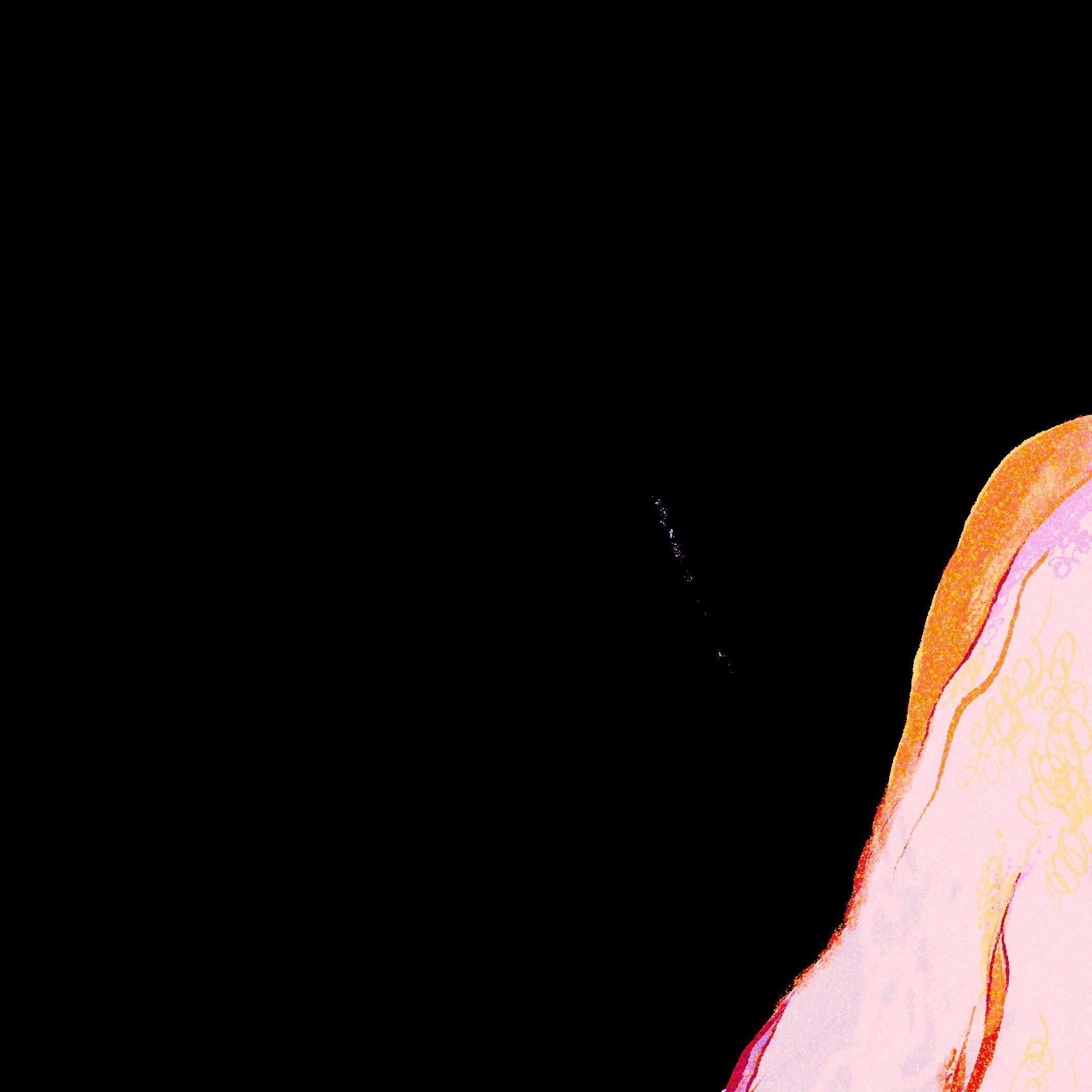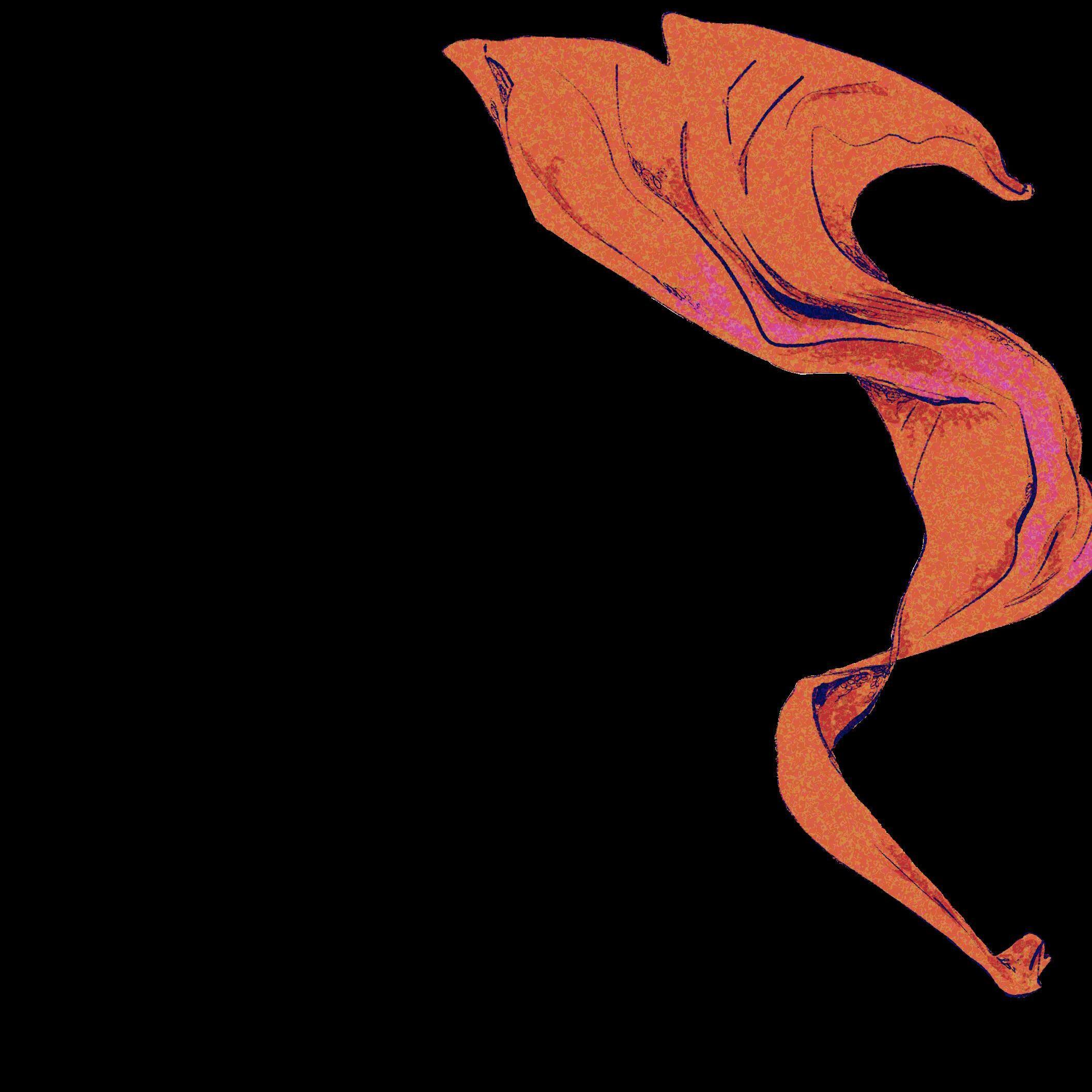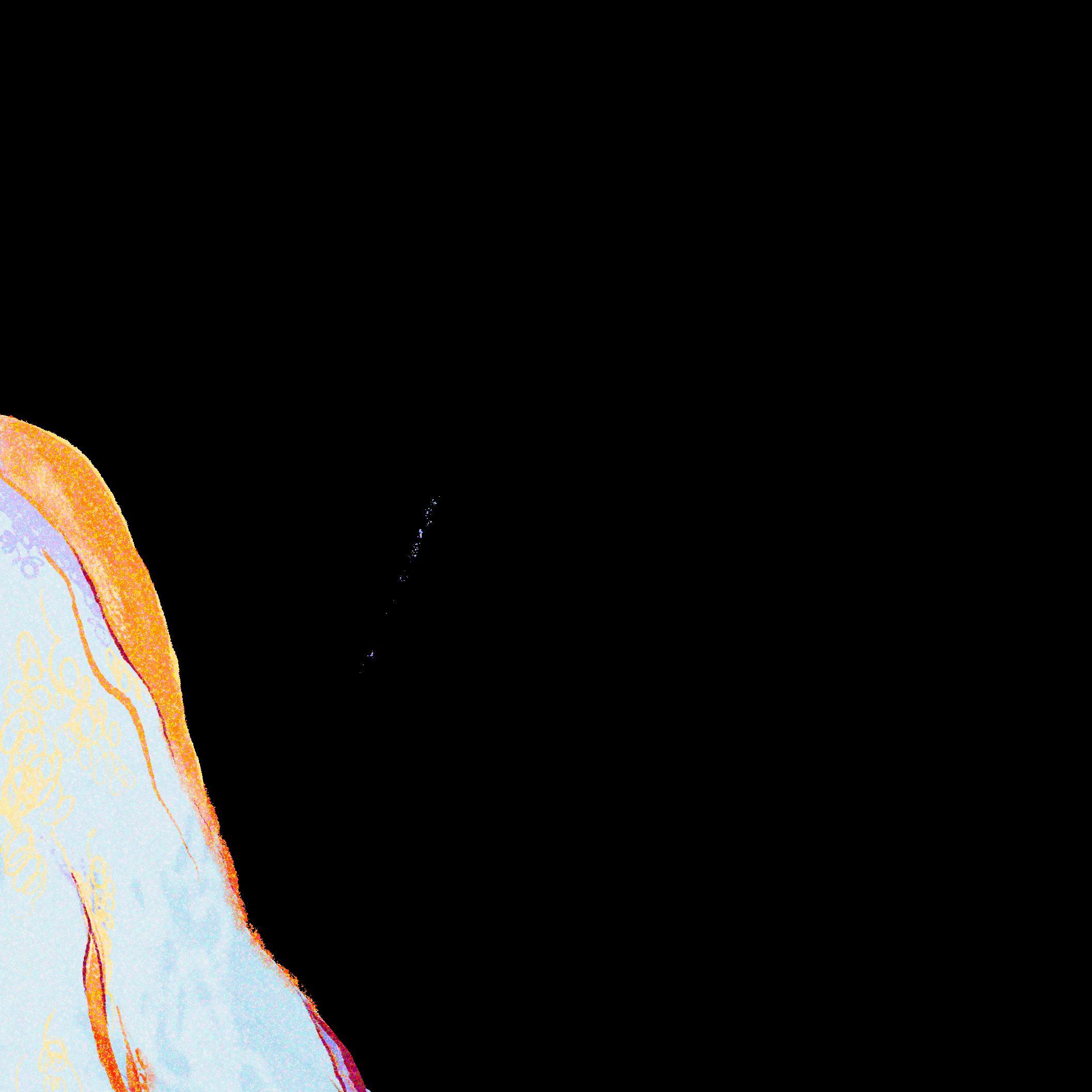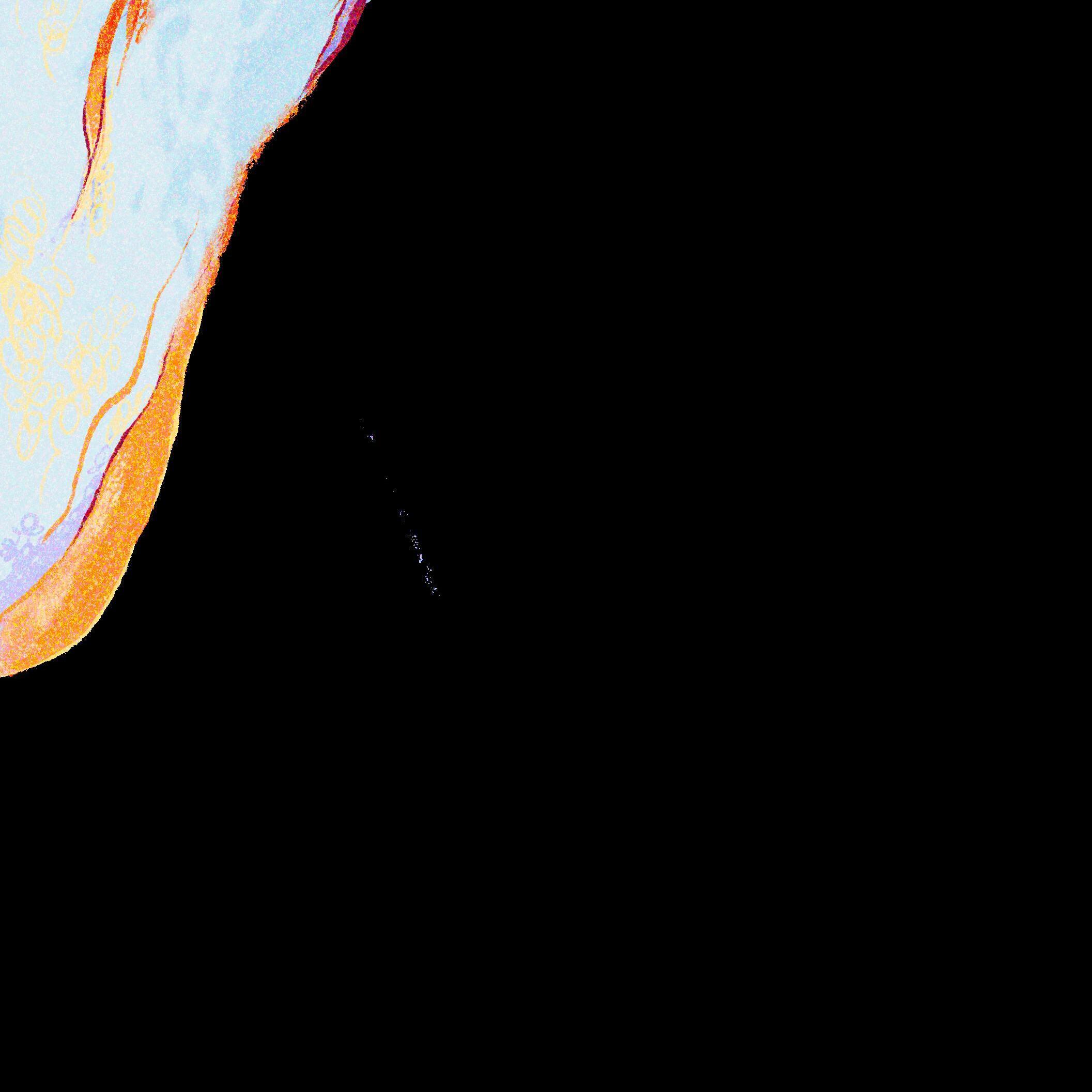sun•ray
Benczúr,
A Shakespearean Sonnet
Walls washed in gold, he showers in riches.
Women conquered, men seduced to defeat
are paint between ripples of blue stitches.
Lost dreams and lives folded into this suite
Shadows laugh where hanging diamonds threaten
to plummet. They'll crash and shatter his pride.
Waiting for power and wealth to set in,
he lies with lives surrendered, cast aside.
With the conviction of the purely wealthy,
he's enriched himself wholly by demanding.
While others move in fear and with stealth, he
walks great halls with booming voice so commanding.
This room is forsaken, a prison's dry cell.
They suffer, he laughs in the face of their hell
Gyula. Project for a Room for King Ludwig II (1854–1886) of Bavaria. The Metropolitan Museum of Art.
Anwen Baugh (‘30)
I once lived in a
small town.
One with
cottages
covered in rainy gowns.
The rain of
blues,
In softer hues,
scattered
among the
cottage roofs.
The lonely
streetlight
bloomed a star,
Onto the stone
pavement from afar.
Leaving a
sorrow bunny
so bright.
It looks up at a
star in a rainy night,
With not one
cloud appearing in
sight.
I imagine the
faeries live
there with
delight,
Connecting
simple stars
like little lights.
Constellations
in a sky so
pure,
It warms my
heart, like a
simple cure.
These cottages
are more than
they seem,
They're a door
to a pure
dream.
The Nobel Crow Ernest Chiu (‘30)
This Nobel crow guards the Nobel grapes of juice.
The grapes have a special content that makes it delicious.
Better than any juice ever invented.
It's called Crow Nest Juice.
The leaves are sacred leaves for mint body care products.
The crow has lived since 100 BCE and watched the grapes for centuries.
Remembering the things that tried to pry its grapes.
Looking for enemies.
An Ekphrastic Petrarchan Sonnet
Adam Zheng (‘25)
Where did it all go wrong? I reminisce.
I think back to the past: Gloucester. The beach.
My brothers rowed the dory while I leeched.
Sat up front, reaching the water. What bliss!
My reflection stares in water’s abyss.
The grey sky behind blue eyes that lay siege
around sail boats. I whisper, I beseech
to my brothers, to take us far on this
day! But frozen they stay, one stares toward
me, right behind. I look at my mirror
of water, who stares harsher than sun’s sword:
light’s glare. ‘Tis but memory, my horror!
Of my three brothers gone, I can’t afford
to reminisce. I stare at my mirror.
Homer, Winslow. Boys in a Dory. 1873. The Metropolitan Museum of Art.
Picking Up Trash
Bryan
Zhang (‘30)
Asian American is political, just as queer is political. I can be both. (Does that mean I’m 2political or political2?) My queer politics don’t end where race begins, nor do my Asian American politics end where queerness
If my politics compound, do my experiences compound as well? Perhaps they each make me not fit in individually. Together, there are even fewer people willing to accept or understand me. Perhaps, for all I think about intersectionality in others’ experiences, I haven’t thought about it deeply enough to understand my own intersectionality. Right now, I think about the pieces of my identity as just that. Pieces. How can I take these pieces and puzzle them together into a truer, more authentic
Even as I work to understand myself, I cannot force others to work on how they understand me. I can’t control what other people think about me. But I can do something for my community, for the people who are like me. For the queer Asian kids who are silently struggling because they think they are the only ones.
How? Everything sounds good on a hypothetical plane. How do I take this mission and enact it?
One example of action is Frank Chin and Jeffery Paul Chan’s “Racist Love.” They present their points harshly and unapologetically. For example, they wrote, “White historians like to say that suddenly a lot of us went home to China. We didn’t, but our bones did, six months after we died here” (Chin and Chan 71). I find myself returning to these lines. It’s like a slap in the face. There’s no going around it. We can’t rewrite history and pretend it didn’t happen. These lines really make my heart hurt because my family has been successful in America. The brushed over and forgotten injustices meant that Chinese immigrants were not as successful as they ought to have been. They deserved so much more. Despite Chin and Chan’s insight on race, they strayed into misogynistic territory. However, their discourse on race remains valuable, despite its shortcomings. After all, there is no such thing as a perfect source. “Racist Love” is an example of what Asian American activism can look like.
I think, though, that I can do better.
Works Cited
Chin, Frank, and Jeffrey Paul Chan. “Racist Love.” Seeing through Shuck, by Richard Kostelanetz, New York City, Ballantine Books, 1972, pp. 65-79.
Hong, Cathy Park. “United.” Minor Feelings: An Asian American Reckoning, 2021 ed., New York City, One World, 2021, pp. 3-35.
Robles, Al. “Untitled Poem.” Aion (San Francisco, CA). Vol. 1, no. 2, Oct. 1971, pp. 80-81, jstor.org/stable/community.29032151. Accessed 14 Sept. 2023.
as my left hand caresses the guitar's neck,
Each tone adding new color to the chord, Each note
Essential and intentional.
Washing away all thoughts and worries and
Suddenly
I am clean.
sun•kissed
Olivia Hu (‘30)
A Love That Grows Lifelong Callie Chang (‘25)
Sitting, waiting, watching.
Rose from a dense, dry soil
How did this life come to be?
Rooted in Sunday morning church bells' chime
A crisp tuxedo jacket, a flowing white dress
So now freely soiled from their stroll.
Walking hand in hand over roots of trees,
A nurtured garden sowed in love.
Let your love stay strong, like these flowers so true,
Won't you grow as we?"
The garden's testament so clear
In their silent bloom, still they pray
That the affection they've witnessed
The couple's hearts be forever reaching for
The light and warmth of each other's presence
Growing like the Blossoms: lifelong.
Monet, Claude. The Artist’s Garden in Argenteuil. 1873. NGA.
Odyssea
Carson Pollock (‘25)
Fantasies and dream lands
Is that what you aim to cast?
Lured unconscious to the ocean by gestural rhythms
planting blue poles among seismic turned shock turned waves
and as you step forward, clutching that bronze compass,
you take off, off the deck, off this world.
Your pointing brush a navigator, drawing about you
as you’re flung into swirling complexities
alternating: depths and dawn, turmoil and elation
thick insistent lines layered with tangerine, gold, and black
the whirlpool of life, You: a ship besieged
and these lurched behemoth masts
the crows nests untarnished
are so much not a fantasy anymore
and you settle again
the western painter.
Swaying with a cigarette and splattered jeans
having mapped the depths of the sea
only working with instinct and intuition
Pollock, Jackson. Number 11 Blue Poles. 1952.
A Shakespearean Sonnet
Something of a Palinode: Falling In Love
Kainda Nzinga (‘25)
I never fell. I’m sorry I used such violent imagery to describe something so natural
Beauty is natural, never forced, never recanted
Love doesn’t stop at realization but finds new ways to seep into new cracks
Love enters stages inside me and travels through me
I never fell
I don’t stop looking at strangers because strangers will never stop looking at me
Love is too big a word for a feeling so small and grieving over a missed
Opportunity at a bus stop is probably foolish, or dissonant
Missing the point, always missing the point because I guess I was just too
Hopeful that love would be returned even when it has no sender address
I don’t think this came from me, but something deeper
I stumbled, but I didn’t fall, I poured out and over
I weeped when the dog died in the movie but I didn’t stop loving the flickering of colors
The portrayals of flat characters blossoming into three dimensional beings before my eyes
Love doesn’t stop when something dies
If it did, we wouldn’t have tombstones. Or eulogies. Or speeches at funerals that make me
Lay my love down softly. Like a flower or a blanket, if love falls it is in layers, petals
Springing unto itself until it hurts
But never to be mistaken for a weakness
If an opening is taken advantage of then that is not your fault
The river never stops flowing just because a schism forms
Water can curve and shape the earth around it- as love can change the people you hate most
Your biggest issue is your reckless heart so solve it with a shell
Hate the shell, hate the shell like the petal hates its bud
Love the bud because it was just a first step
A tentative peek into what the world could offer, what the world could be
Some people don’t understand the beauty of the color green simply because
It is so gorgeously abundant
There is no issue with stumbling
So forgive yourself, my heart
For overflowing
activists who would come after him.
Understanding Frank Kameny means understanding the past, present, and future of the fight for LGBTQ+ rights. Today, Kameny and the other pre-Stonewall activists are hardly mentioned, but without understanding the discipline of pre-Stonewall gay rights, it is impossible to understand the explosiveness of post-Stonewall gay rights. Stonewall had a great impact, but groups like the Mattachine Society and individuals like Frank Kameny set the stage. In the present, understanding Kameny’s experiences helps identify the tactics that politicians use to target transgender individuals; the antitrans rhetoric of today is recycled anti-gay rhetoric. Kameny’s methods were not perfect, but he serves as an example of what resistance means. The world has changed, and directly copying Kameny is unlikely to work, but adapting an existing course of action is much easier than creating a new one. Finally, history repeats itself. Kameny will not be the only one to lose his job because of identity-based discrimination. Understanding the events that led to the Lavender Scare provides opportunities to prevent it in the future. If society does not learn from its mistakes, it shall never progress. Kameny is no longer here to provide his wisdom, so it is up to the people of today to continue his legacy.




Love
Love is a pain in your chest,
Overly excited feelings
Very scared to be near them or say the wrong thing.
Ending of feelings as they change
Blushing Petals hide
Cruel thorns on their underside.
Decadent feathers obscure
A scavenger’s true nature.
Shining scales conceal
Venom prepared for the next meal
Fate is a cruel mistress, yes.
Yet, is our mother any less?
Misty morning drew, catching the
dawn’s early light, like flies,
drips off her web.
Do you lie in league with death, oh
dame of decay?
Yet, I am grateful.
I love her.
Is this blindness, or beauty?
I.
The color of my eyes is dirt brown. I like them. I am born of the Earth, my eyes say. I am the world’s
riches. I am her beauty, the beginning of her beauty, the end. I am the fragile space between the shoe
and the core. I am grounded, I am nurturing. I grow and grow and decompose and revitalize. I am
eternal.
II.
My eyes are equidistant from the center of my heart; meaning that they aren’t symmetrical on my face.
Nothing is. My mind cannot rip its gaze from my imperfections. I will torture myself with ideas of perfect
love. I want to be forever close to the beat of your heart. So how about this: let me wrap my hands
around your cage of bones and let me crack it open. Let me sneak through the red caverns of your veins
and the strings of your tendons. I’ll swim through the acids of your stomach and crawl up the ridge of
your esophagus. I’ll skip around the bend of your throat where I’ll rest in your lungs, breathing in your
oxygen. Your lungs are thinly veined like marble, fragile

like a rabbit’s ears. This is where I’ll rot and
perish. I will latch on and grow and multiply, bubbling and settling into the cavities of your tissue. From
this perspective I can observe. The cells of your heart are beautiful like cracked earth or the venation on
a leaf. Your skin smells like baby powder and is moist from the humid summer air. The bones of your
teeth are spumous and your gums are pink like a frail spring air. We are finally perfect.
A concept between green and gold is where my adoration exists.
III.
Bury me under that willow tree in the graveyard, next to that worn white stone bench. Let the squirrels
hide their acorns above me, let the bees make their nest in the flowers you leave for me. Let them fly
the course of their short lives around me and let me understand. My own fragile body died too quickly; I
see it in the striped husks that are littered above me.
Let the seasons pass: let the grass that blankets my body wither and become green again. Look at the
shoes that step on me, the strings of their laces worn. Let them decay like the strings of my flesh. Let
your tears salt my earth, let your smiles brighten my sky. Let the world spin and spin and spin around
the aching pull of the sun. Let time eat at me until there are barely bones left; yes, let time feast. For I
am happy, desperately so, to let the Earth swallow me once more.
Today I am me, tomorrow I take my place among celestial bodies.
I took my father’s old sailboat,
Its peeling color, its old wood hull.
I drifted far as she carried me along
the white tips of her long blue hair.
All the way to an island of grey stone.
B, Arthur.
The sea shook the storm and brought me high on her wave
High enough that I could see her waiting for me on shore
Her deep blue eyes, her long wavy hair, her flowing dress of blues
Her voice shook my boat, calling me to jump.
I knew I would be safe in her gentle arms.
Davies
Bear Island Light. New York 1900-1928 Painting.
The Courtyard William Hook (‘24)
Brisk, single, alone: the tree stands outside
the courtyard. Swaying in the crisp early morning
breeze. The sun rises in the morning every day.
The hens croak while the donkey slumbers.
Routine.
While the father is away on the boats,
the young child is out with the animals.
Grandma watches over the house.
She always had a desire for more.
But the generations have grown up
in the same village square.
Routine.
Grandma goes inside to make dinner for
her some when he arrives home.
He does at 6pm, routinely.
Carrying fish in one hand and his briefcase in the other.
Raffaëlli, Jean-François. Village Square, Cagnes. 1913. The Metropolitan Museum of Art.
algorithms’ echo chambers. However, platforms refuse to ban hate and extremist content because they want to maintain profits and avoid First Amendment battles.
For those tied tightly to extremist ideologies, deradicalization through counter-narratives is unlikely to succeed, either online or offline. Instead, van Eerten et al. argue that counter-narratives should target members of extremist organizations who are resisting radical beliefs because they will be more responsive to deradicalization on social media.
Once an audience is identified, the challenge becomes the successful implementation of a counter-narrative. This begins with the creation of the message; specific attention should be paid to plausibility and credibility. By definition, a counter-narrative counters an extremist narrative, but a blatantly moderate message might be immediately dismissed. Then, the content is not absorbed, and the counter-narrative is ineffective. There is an appropriate balance between the truth and the truth that will be accepted by the audience, which is different for each extremist group; each counternarrative must be tailor-made, even if the general message is the same. Once the message has been created, the counter-narrative must be disseminated from a credible source, which, to an extremist, is not the same as a credible source for the average user. The message must mimic sources the extremist trusts, and it must come from an account that does not stand out as moderate.
Masking an account as extremist can take advantage of the platform’s algorithm and help the content appear on a user’s feed. In some ways, deradicalization involves infiltration to understand how the extremists understand the world. Unfortunately, one unanswered question is how a counter-narrative campaign might backfire and incite further action from extremist organizations.
sun•bleached
In the waters deep,
Where dreams take flight,
With each stroke, our spirits ignite.
With every kick and graceful glide,
We swim upon the surface bright.
Bonded by practices and meets, beaming with pride,
Through every lap we push ahead,
In waves of love our fears we shed.
In unity we reach our gleaming beam,
In love for swim we freely roam,
For in our team, we reign supreme.
Swim
Rowen Wang (‘30)
Photograph by Rowen Wang
Have you ever heard
Amelia Smith (‘30)
Have you ever heard that saying
"one man’s trash is another man’s treasure"?
What makes something trash?
Just Something no one wants?
In that case can humans be trash?
When their hearts get broken?
Thrown away?
I think nothing is trash
There is always a way to help it
Or reuse it
Because
"one man’s trash is another man’s treasure"
Three feet wide, a portal grand,
To frame perspective, where thoughts expand.
A realm of past adventures, at memory’s demand,
A threshold to false truths, told from lie’s command.
The mountain yonder, its curve so fine,
A wave in the sky, just a sight divine.
A reminder of heartbeat, that sickening line,
I'd left the hospital, despite health's decline.
A surfer ascends up the mountain's crest,
Unfulfilled dreams, an anchor, on my chest.
Riding rays, my journey blest,
Finding solace in this ending’s quest.
Oh, heavy Thursday, you start askew,
Windowing my soul in shades of blue.
Your light so bright, though I must pursue,
I now leave this Earth, find strength anew.
My father says we are at Mother Earth’s mercy.
So, I never fear a freezing fate.
I wholeheartedly trust the fragile blanket of ice beneath my skates
That creaks, cracks, and groans but never gives way.
My father’s father says we are at Mother Earth’s mercy.
So, my father believes the spring salmon soon will return.
He never grows weary; he trusts his steady hand.
He will find a way to feed his family.
Kekknoek, Barend Cornelis. Winter Landscape, Holland. 1833. The Metropolitan Museum
of Art.
The river freeze and flow,
Spring saplings rise above the snowy tundra,
He knows Her all too well now.
So - this must be why my father’s father rises at dawn. He strolls the same snow-packed path,
reminisces of childhood memories racing over the frozen river,
remembers the calloused, broken hands of fatherhood.
Even so, he wakes to admire the good Mother Earth brings our family.
He truly believes that She blessed mankind.
Mason Herr (‘24)
I’ve forgotten the lyrics to the anthem
The last time I had to look at an American flag every day was 6th grade
Most unGodly kids I ever knew
Red was for apples, my least favorite subject’s folder, the color of blood in our history books
White was for my english teacher’s smile when she tells me my good writing surprises her, her equally white skin and the whiteboards
And blue was for the color of the sky, my science teacher’s phone case, my backpack
Now that I’m in high school me and my friends know it isn’t stars, stripes and everything nice here
The boys basketball game starts and everyone stands before the flag, before the anthem too
We have our own rituals for our boys in white and blue, we don’t sing “Oh, say can you see” we have an instrumental version
My friends don’t put their hands over their heart
They stand stiff or look at their phones like they’re at a protest only they can see
I wonder what that does for them
I put my hand over my heart just to feel it beating. I’m still here. No matter how much some people didn’t want me to be
I miss the rhythm most of all
Is that bad? That I want us all to sing a song none of us believe in just to harmonize?
I feel so nostalgic for it, hungry for the recreation of an epic. Lord knows high school is boring
That’s why some kids were allowed to leave before the StarSpangled started
Believed in God too much to praise an idol
That’s just what it looks like now, in the basketball stadium.
A cardboard cutout.
In elementary school the flag was outside and we sang while the sun was still a bright, weak ball in the sky
Never cutting through the haze of fog well enough to get in our eyes
I’m nostalgic for that too
Even in 6th grade, there was a blast of dust that would enter the air as we all stood up and shaped the first notes
It’d float through the class and fairy dust the flag
We brought it alive with our voices, our beating, bleeding hearts
So why don’t we do that anymore? Guys? Why don’t we watch a science documentary about how light from the sun interacts with our eyes? Makes the flag look so much brighter! Almost brighter than if you
Set it on fire
I forgot the lyrics to the anthem
I haven’t forgotten America’s place in the economy
And I guess that’s what high school is all about
In the seat by the door, an older man with chocolate skin and thoughtful eyes sat perfectly still in his tan corduroy pants, gray button up shirt, and scuffed up, once black loafers. His small trunkstyle suitcase in the luggage compartment, labelled conveniently by the worn leather tag with the engraved words William James held a few other sets of clothing, all of the same nature. He also had a toothbrush, toothpaste, hair gel, and a compact phone book with yellowed pages. Besides his glasses and billfold, which he kept in his right pant pocket, and a tarnished, gold analog watch fastened around his left wrist, he owned nothing else.
The man and all of his belongings remained on the train for 5 stops - 4 hours and 3 minutes - through many miles of green fields and occasional villages. He had no book or headphones, and he didn’t sleep or twiddle his thumbs. For 5 stops - 4 hours and 3 minutes - the man sat in peaceful, thoughtful stillness.
September 8th, 1951
“William James, don’t play with your food! You are seven years old now. I think you can handle eating like a grown man” said his mother, who spent all day slow cooking the chicken that William was now airplaning around the room while mimicking engine sounds.
“Bzzzzz! Bzzzzz! Mom, look! The plane is about to land!” exclaimed William, ignoring his mother. He sent the full, dripping fork into his mouth and closed his lips around it. His bright red shirt and dinosaur shorts acquired a few new oil stains. “Mmmmm, this is so
“Thank you, baby, but seriously. Sit down,” his mother laughed, rolling her eyes as she guided him to his chair with her hand on the back of his head and half-heartedly patted the food off his
William was the only kid his mother ever had, but he still didn’t know how his mother kept on top of him all by herself. William didn’t know his father, but he never cared to, really. Not with his mom around to watch out for him and play with him and feed him and give him a good old talking-to when he needed it. He didn’t think he’d ever love anyone else like he loved his mother.
November 20th, 1962
William had never worn all black. In fact, he didn’t own anything fit for a funeral, so he went to the men’s dress shop on Bardot Avenue, which he had passed probably 20,000 times but had never stepped foot in, and bought the nicest suit they had under $75, along with a pair of black loafers. William shaved for the first time in a week, although his sense of time was significantly warped and he wouldn’t know what day or time or even year it was if not for his prized gold watch, a present from his…
Mother. He still found himself thinking of her in the present tense, and every time he heard a car door shut on his street, he hoped it was his mom getting home from work.
William knew about death, but in a sort of distant, conceptual way. The empty spot on the far left of the third pew where an old church-going lady used to sit and keep to herself. The white cross propped up against a tree on the side of the two-lane highway, always accompanied by a fresh floral bouquet. 77

The racks of size large clothes - seemly from one old man - in the thrift store, probably donated by the nursing home down the road. William knew death abstractly and implicitly.
But when faced with the loss of his own mother, none of it felt familiar. The overwhelming heaviness that weighed down every step he took; the way his throat tightened up when he walked past her room and how it made him much too aware of his difficulty breathing; the way every color was significantly less saturated than usual. He hadn’t known death like this.
William was sure he must have shaken at least 500 hands and hugged at least 200 people, although he hardly remembered any faces. His mother’s coworkers, old neighbors, childhood friends, and distant relatives all came to the big AME church in town for the funeral, but William only knew the names of a select few who had been over for dinner once or twice.
He didn’t cry. Not in front of these strangers who pretended to know him, to know his mother, to care about him. They would all head out after a few hours, maybe leaving behind a card, flowers, or a meaningless phrase of condolence for the sake of manners.
“Dear boy, you must be so distraught…”
“We are so sorry for your loss… and so young too…”
“I hope you know how much your mother talked about you…”
“If you need anything, please swing by…”
All of their comments floated in and out of their ears, seeing right through the southern charm, and recognized it quite easily after 18 years of living in rural Georgia. William was nauseated by the white ladies in big black hats and gloves, making their presence known as if to prove a point, even though his mother told countless stories of them talking down on her and the way she spoke so “black”.
“Bless your poor heart,” they pitied, although it somehow felt more insulting than if the white ladies hadn’t spoken to him at all.
William spent all day in the sanctuary because his house didn’t feel much like a home anymore.

The place itself with its leaky roof and its broken tiles wasn’t all that special. But his sweet mother. She was home.
So, even in the church filled with people reminiscing their favorite memories and speaking of her fondly, he thought he might as well be on another planet because he felt so alone, so far away from the love and joy and celebration of the hero who raised him. Under the blue rays of sunlight tainted by old stained glass, William was in complete and utter darkness.
March 23rd, 2002
In the seat by the door, William James sat in perfect, peaceful stillness as the train sped though many miles of Northern French countryside. He looked out on the world as it woke up with the rising sun, and William wondered if there was a boy somewhere on the other side of the window had just lost his home, his hero, his heart, and would find himself on a train. Maybe the boy, like William, would come to find that he was most at peace in the interim, the in-between. Afterall, a vagabond is most content when he is neither here nor there.
Thank you to all who submitted and made this volume possible! Please stay tuned for Volume 3, and make sure to scan the QR code to follow us on our new Instagram account for future updates!
- Cary academy lit mag team











































































